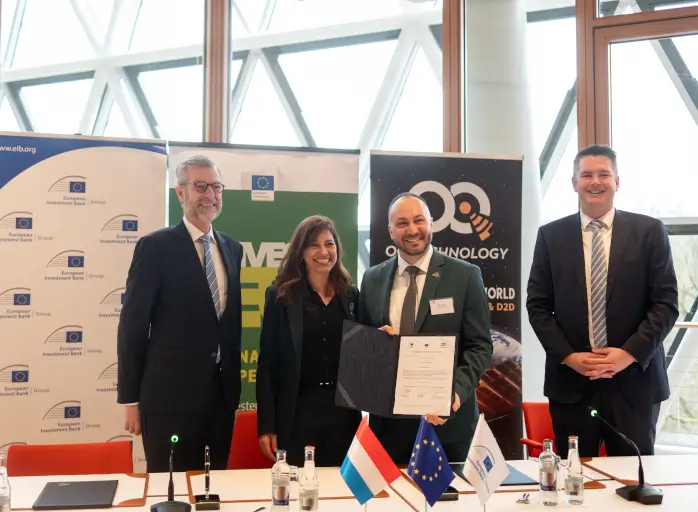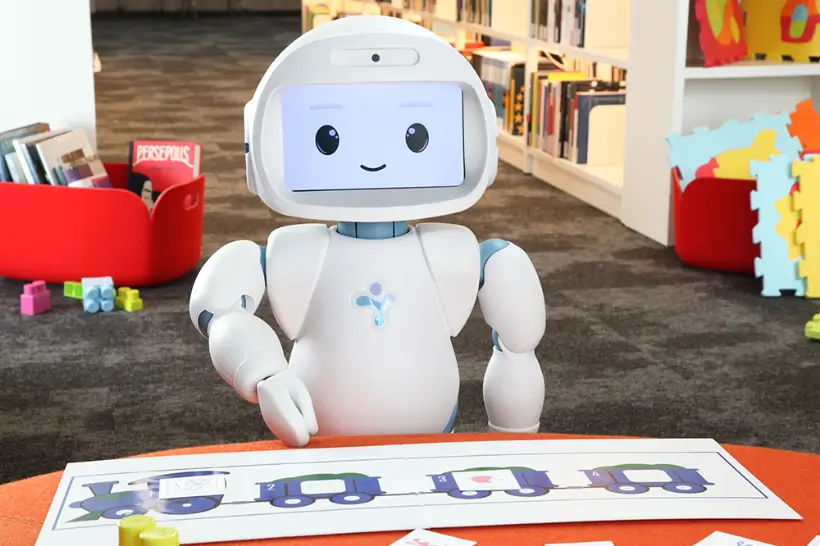

Empowering autism support with AI: Dr Aida Nazari’s journey
How LuxAI’s co-founder blends tech and empathy to transform early autism intervention through gamified learning.
 Startup Luxembourg
Startup Luxembourg
From medicine to innovation
When Dr Aida Nazari first landed in Luxembourg, starting a company was not even on her radar. She was a medical doctor and had moved here with her husband as he pursued a PhD in artificial intelligence. But as a non-EU national with a degree from outside the EU, continuing her medical career right away was not possible. So she took a chance on something new - joining a local startup. That decision opened up a whole new world she had not expected.
“I learned that if you have an idea, you can transform it into a product. There is an ecosystem around startups that I had not seen before.”
This experience coupled with her medical training, along with her husband’s expertise in AI and the widespread delays in accessing support services for autistic children, sparked the idea for LuxAI and its flagship product, QTrobot - a social robot designed to support autistic children through structured, gamified learning.
Building a startup from scratch
Creating LuxAI was far from easy. “Every single day you have a new set of challenges,” Dr Nazari admits. “You start very naively, thinking you will have a product in in six months and launch in the market in two years. But then you realise that there are five years of product development, certifications, funding and regulatory hurdles.”
Despite the obstacles, she never considered giving up and created her own way forward. “I never take rejection personally. In Luxembourg, I have found a genuine willingness to support gender equality, which I really appreciate.”
QTrobot was developed in close collaboration with families, schools and therapists. Dr Nazari emphasises that their feedback shaped every aspect of the product - from the robot’s design to its session plans.
“Initially, we gave families the whole concept at once,” she recalls. “But we realised that parents, especially in the beginning, are so excited that they skip essential steps. So we adapted the product to guide them through a more structured learning path.”
The impact has been profound. “Sometimes we receive emails or videos from parents that are so emotional. They describe our vision better than we ever could,” she says. “QTrobot empowers them to support their child’s development step by step.”
QTrobot is not only intended for families, but also for therapists working with autistic children who benefit from longer and better engagement.
AI with purpose
LuxAI’s name reflects its founders’ early belief in the transformative power of artificial intelligence. “We named the company LuxAI in 2016, when most people did not even know what AI was,” Dr Nazari says.
Today, the company uses a range of AI tools across its products. However, when it comes to early intervention for autistic children, LuxAI takes a cautious approach. “In these models, we need guaranteed efficacy. We do not use generative AI where we cannot control the output,” she explains.
For example, speech recognition is avoided in certain contexts. “If a non-verbal child mispronounces something, the robot might interpret it as wrong. But for that child, it is progress. That is why accuracy is more important than automation.”
Looking ahead, LuxAI is exploring how large language models can be adapted for therapeutic use. “We are focusing on how to train general models to deliver cognitive behavioural interventions and emotional support,” Dr Nazari says. “Generic models are not suitable for health-oriented applications, but with the right training, they can be.”
Growing from Luxembourg
Today LuxAI is headquartered in Luxembourg, with offices in London and New York. The company sells QTrobot in over 35 countries, including North America, Europe, the Middle East and South Asia.
“Luxembourg is a great place to start,” Dr Nazari says. “There are challenges - hiring, fundraising and the need to think internationally from day one - but the support from institutions like Luxinnovation and the Ministry of the Economy has been invaluable.”
Reflecting on her journey, Dr Nazari acknowledges the steep learning curve. “There are 100 things I would not do again,” she laughs. “But I have learned that opportunities of meeting the right people, opportunities of meeting the right teams or getting aware of the right information - most of the time they come from the places that you did not expect them from.”
Her story is a testament to the power of resilience, curiosity and purpose-driven innovation. Through LuxAI, she is not only building a successful startup – she is also helping to improve quality of life for autistic children and their families.


